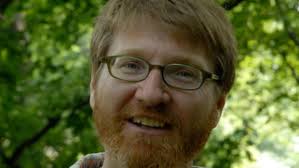The least competent people often think they’re the best.
by David B. Feldman Ph.D.
Recently, a friend of mine told me about his roommate woes. “He’s a super nice guy,” my friend told me. “But he sings all the time, and he’s terrible!” Even with the solid construction of their shared apartment, his voice pierced the barriers separating rooms. “If he were any good, it would be fine. But he sounds like a dying whale.”
At first, I wondered if my friend was being a bit too hard on the guy. Then a video appeared in my inbox. His roommate had tried out for American Idol, and my friend’s characterization of his voice was, unfortunately, spot on. Needless to say, he didn’t make the first cut.
What fascinated me, however, was what occurred before and after the audition. “I am highly confident that I will walk out with the golden ticket today,” says the would-be contestant on a voice-over as the video begins. Then, despite the judges covering their faces and saying things like, “Singing is not your thing,” and “I’ve never heard a sound like that,” he continues to believe he is a talented vocalist. When asked why the audition went south, his answer was simply, “I was a little nervous . . . I think that’s what it was.”
This kind of audition isn’t rare. A brief internet search reveals hundreds of similar experiences. Moreover, outside the musical arena, most of us know at least one person who believes they are gifted at something that they’re actually not very good at — the manager who can’t manage, the teacher who can’t teach, or the doctor who sends patients running for the door.
It’s called the Dunning-Kruger effect, after psychologists David Dunning and Justin Kruger. In a classic article appearing in the Journal of Social and Personality Psychology, they show empirically that the least competent people often believe they are among the most competent.
Their explanation for this phenomenon is simple, though it reads like a tongue twister: Unskilled people lack the skill necessary to evaluate their own skill. That is, the skills needed to be competent at a particular task are virtually identical to those required to evaluate one’s competence. Bad teachers often can’t tell they’re poor at explaining things, because they lack an understanding of how to explain things. People who aren’t funny often don’t know they’re not funny, because they lack an understanding of what is actually humorous.
Judging one’s competence requires something that psychologists call metacognitive skill, the ability to examine one’s own thoughts. Practicing metacognition requires us to relinquish our usual egocentric perspective and examine ourselves from the outside. Instead of blithely believing we’re smart, funny, or interesting, we must step out of our skin and more objectively evaluate ourselves. Most of us lack the metacognitive skill necessary to accurately judge our performance. Try a little experiment the next time you’re at a dinner party. Ask people to raise their hands to indicate whether they believe they’re above average, average, or below average on virtually any trait most people share to some degree, like intelligence or likableness. Defying the statistical odds, most people will say they’re above average, at least in Western cultures. Although researchers have observed such self-enhancement effects across the globe, they may be somewhat less strong in Eastern cultures, which tend to place a greater priority on modesty.
Though most of us aren’t great at judging our own competence, those worst at a skill may be the poorest judges of all. In one study, Dunning and Kruger asked college students to self-rate how favorably their logical reasoning abilities compared to their peers. They also asked the students to take an actual test of such abilities. The results were stunning: The participants who were least competent at logical reasoning overestimated their abilities to the greatest extent. Though they believed they rose to nearly the 70th percentile, they were actually in the 12th percentile, on average.
The Dunning-Kruger effect isn’t just an academic curiosity. It has real-world implications. In a study appearing in the journal Medical Education, researchers asked medical residents to self-rate their competence regarding a variety of common medical procedures. More than 75 percent of residents believed they were so proficient at most of the procedures that they could teach them to others. Actual experts disagreed. After observing the residents attempting to perform these procedures, expert judges generally indicated that fewer than 20 percent of them met this standard.
So, the next time you think you’re the best at something, stop and consider whether you may be an unwitting victim of the Dunning-Kruger effect. While your driving may indeed be worthy of the Indy 500, it might also be downright bad. While your latest idea may eventually lead to a Nobel prize, it may also be nonsensical. Worst of all, you might not be able to tell the difference, at least not on your own.
Luckily, there’s a surprisingly simple antidote to the Dunning-Kruger effect: feedback. One of the best ways of knowing whether or not we’re performing well is to seek feedback from trusted people who are widely acknowledged to be high performers.
The key to this strategy, of course, is being open to actually hearing what they have to say, fighting our natural tendency to become defensive. Though my friend’s roommate had an excellent opportunity to learn from the judges’ feedback, he discounted their observations, preferring to believe that he was simply “a little nervous.” All of us have felt defensive at times, but it is perhaps only though constructive, well-meant criticism that we can come to realize our flaws and grow as human beings.
With the right guidance, maybe more of us will live up to our own self-perceptions.
But we may need a lot more spots on American Idol.

